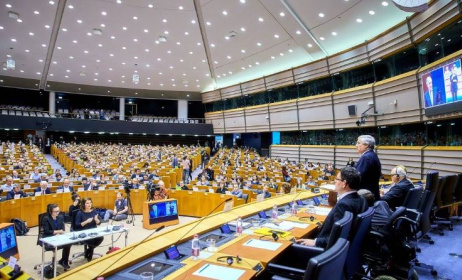Hausa hip hop goes to Europe
A book on hip hop in Hausa language titled ‘In Da Haus. A Story of Hip-Hop and Oral Literature in Hausa Society’ will be published later in the year.
 Classiq is a popular Hausa rapper.
Classiq is a popular Hausa rapper.
Its author, the Polish cultural historian Mariusz Krasniewski, gathered much of the material discussed in the book over several months between 2014 and 2016. Countries covered by the book include Niger, Nigeria and Ghana, homelands of the Hausa.
“If we compare social functions and forms of presentation, Hausa hip-hop has a lot in common with traditional folktales,” Krasniewski said in an interview with German publication Deutsche Welle. “Deliberately or not, it fills the gap between tradition and modernity. It is a music that was developed in Northern America by African Americans and then exported to Africa as a Western cultural product.”
Though hip hop on the continent has a long history, the first album of Hausa rap came was released in 2005. Titled Taka, it was made by rapper Abdullahi Mighty, an artist from Kano state, Nigeria. On one of the tracks from Taka, says Deutsche Welle, “it's possible to find traditional influences, with a focus on clapping and rhythms of the kuntigi (a traditional lute used in Hausa music), and modern sounds with the Hindi film music and Jamaican toasting.”
In Nigeria, perhaps the most prominent of Hausa rappers is Classiq, who used English at the start of his career. "I was initially rapping in English," he told Daily Trust, "then I thought to myself, everybody is rapping in English, with the Hausa I have learnt in Kano, how do I carve a niche for myself?"
As with some of their continentally famous pop artists, including Wizkid and Patoranking, Hausa rappers are influenced by music from the Caribbean. Krasniewski traces this influence to the dispersal of Africans. “[A]ll the music created by the descendants of African slaves, apart from the fact that it was subjected to various external influences, is somehow African and thus can be considered as a part of a wide African heritage,” says Krasniewski.
Though focused on Hausa rappers, Krasniewski gives some credit to the Ghanaian artist Gyedu Blay Ambolley, whose 1970s track ‘Simigwado’ was one of the earliest songs to employ rap. “It is a very funky, highlife tune,” he says, “but the inclusion of melodic rap recitations and the track's release date actually make the Ghanaian artist one of the founding fathers of the global hip-hop movement!”




























Comments
Log in or register to post comments